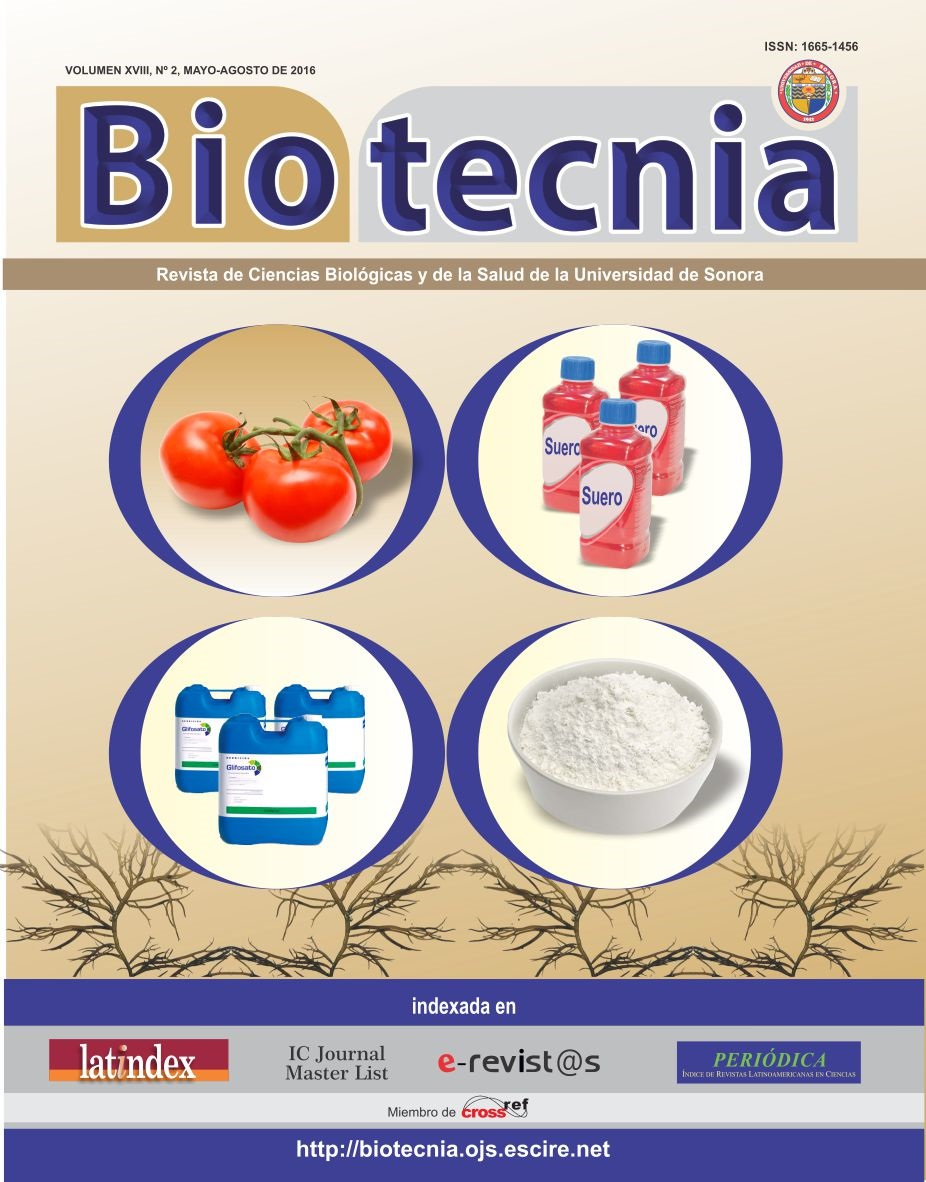ACTUALIZACIÓN SOBRE ASPECTOS OXIDATIVOS DEL EFECTO DEL GLIFOSATO EN SISTEMAS BIOLÓGICOS/ AN UPDATE ON THE EFFECTS OF GLYPHOSATE ON THE OXIDATIVE STATE IN BIOLOGICAL SYSTEMS
DOI:
https://doi.org/10.18633/bt.v18i2.279Palabras clave:
estrés oxidativo, glifosato, sistemas biológicos, toxicidad/ oxidative stress, glyphosate, biological systems, toxicity.Resumen
El glifosato es un herbicida de amplio espectro que se utiliza para el control de malezas en cultivos de interés agrí- cola; genera la muerte del organismo blanco afectando su capacidad de sintetizar proteínas esenciales para la supervivencia. El glifosato inhibe la enzima 5 enolpiruvilshikimato- 3-fosfato sintasa que forma parte de la vía metabólica de producción de aminoácidos aromáticos, ya que se comporta como un análogo de un sustrato de dicha enzima. Se han presentado evidencias que indican que el glifosato y sus formulaciones comerciales generan situaciones de estrés oxidativo en cianobacterias, microalgas y plantas superiores no blanco de este herbicida. Sin embargo, la verdadera dimensión de la magnitud del efecto oxidativo generado por la exposición al herbicida, aún es materia de deliberación. El objetivo del presente trabajo es resumir la información disponible sobre el metabolismo y la participación del estrés oxidativo en la toxicidad del glifosato en sistemas biológicos. El conocimiento de los riesgos ambientales generados por el uso del glifosato ayudará a evitar daños irrecuperables tanto en plantas como en animales al emplear el herbicida. ABSTRACT Glyphosate is a broad-spectrum herbicide used for weed control in crops of agricultural interest. This herbicide causes the death of the target by affecting their ability to synthesize proteins essential for survival. The activity of the 5-enolpiruvilshikimato-3-phosphate synthase enzyme, which is part of the metabolic pathway for production of aromatic amino acids, is inhibited by the glyphosate that behaves as an analogue of the second substrate (phosphoenolpyruvate). There is evidence that indicate glyphosate (and its formulations) produce oxidative stress in cyanobacteria, microalgae and no-target higher plants. However, the true dimension of the magnitude of the oxidative effect generated by the exposure is still a matter of discussion. The objective of the present study is to summarize the available information on the metabolism and the involvement of oxidative stress in the toxicity of glyphosate on biological systems. Increasing the awareness of the environmental risks generated by the use of glyphosate will help to avoid unrecoverable damage to both, plants and animals during herbicide handling.Descargas
Descargas
Publicado
Cómo citar
Número
Sección
Licencia
La revista Biotecnia se encuentra bajo la licencia Atribución-NoComercial-CompartirIgual 4.0 Internacional (CC BY-NC-SA 4.0)










_(2).jpg)





